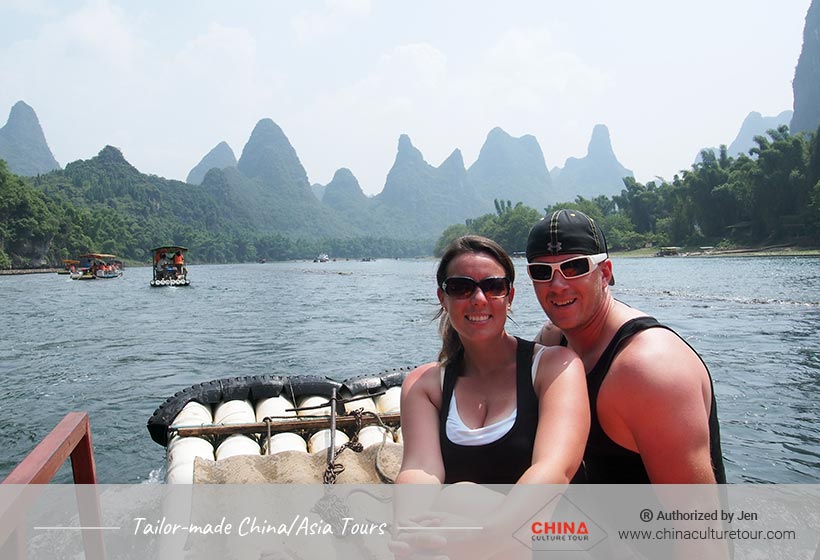20 Top Tips To A Deep Dive into China Food Culture
Wiki Article
Top 10 Tips To Shop Bargaining And Etiquette In China
1. Tip: Begin low Be respectful, however, you should offer between 50-70percent of the quoted price and then negotiate upwards. You can show your seriousness if you are and firmly but polite.
Pro: Clearly establish your position without offending seller.
Cons A low start can frustrate sellers of items with smaller margins.
2. Knowing the Market Value
To ensure you don't pay excessively, you should research the cost of a typical purchase before you make a purchase.
Pros: You won't be deceived and you'll feel confident in the negotiations.
Con: It is time-consuming to research, especially for unique or handmade goods.
3. Show Genuine Interest
Tips: Sellers might be more willing than usual to negotiate with you if they feel that you are truly interested in purchasing.
Pro: Builds rapport with the customer and increases their chances of obtaining an affordable price.
A frenzied attitude may signal a willingness to shell out more money, thereby weakening your standing.
4. Step Away Strategically
Tip: If you don't notice a price reduction be patient and walk away. Sellers might call you back to offer a lower price.
Pro: Often, this tactic works well to obtain the lowest price.
Con: Could be detrimental, especially in the event that a seller doesn't wish to reduce their prices. This is especially true for highly demanded items.
5. Learn Basic Mandarin Phrases
Tip: Phrases like "Tai gui le!" (Too expensive!) If you could make it cheaper, use "Pianyi" or "Yidian ba?" Make an effort.
Pro: Personalizes negotiations and softens the stance of the seller.
Cons: Specific phrases might not be effective in more complex negotiations.
6. Be patient and calm
Tip: It can take some time to bargain. Be calm to not appear desperate.
Pro: Sellers reward calm and consistent buyers with higher-priced deals.
Con: Takes time and energy, particularly in crowded markets.
7. Bring Cash
Tip: Sellers may be more willing to lower rates for cash-based payments instead of using digital payment methods.
Pro: Cash-on-delivery offers, particularly with small sellers, can result in discounts.
Con: Pickpockets can make it dangerous to carry cash in markets.
8. Group Discounts
Ask for discounts in bulk when you purchase multiple items.
Pro: You can boost your bargaining skills and score more bargaining power and a better price.
Pro: It requires you to buy additional items that might not fit your needs.
9. Don't Be Afraid to Say No
Tips: Be polite and decline and then walk away if find that the seller will not lower the price.
Pro: You'll be able to stay clear of buyer's guilt and stay within budget.
Cons: You might miss out on a product you've always wanted.
10. You Should Never Bargain
Department stores and boutiques that are high-end is not the place to find bargains.
Pro: Maintains cultural respect and helps avoid embarrassment.
Limitations to your negotiation options when you are in certain settings
Pros of Bargaining in China
Negotiating the cost can be an excellent way to reduce costs.
Culture: Bargaining offers the chance to learn about local customs, traditions and different cultures.
Personal Interactions: This creates an emotional connection with local merchants.
Pros and Cons of Bargaining in China
Haggling can take a lot of time, particularly for those who are not skilled.
The language barrier can cause communication difficulties.
It can be stressful because Not everyone is a fan of bargaining.
If you master these techniques by implementing these tips, you'll be able to be able to navigate Chinese markets with ease and will enjoy the art of haggling as a part of your journey through Chinese culture! Check out the top explore this top-rated location for more recommendations including eating in dunhuang, blue dragon temple, shopping in nanjing, shopping in dunhuang, shopping in fuzhou, eating in changchun, tips for identifying copyright, eating in dunhuang, chaka salt lake, eating in zhengzhou and more.

Top 10 Tips On Fees And Photography Regulations While Visiting Temples In China
1. You can plan your budget by looking up ticket prices before you go to the venue. Plan your trip in advance.
Pro: Avoid surprises by preparing the proper amount of cash and the digital payment.
Con: Unexpected costs, such as charges for exhibits, can arise.
2. Bring cash or a digital payment
A tip: Some temples will only accept cash or popular Chinese payment methods like WeChat Pay or Alipay.
Pro: No delay in payments.
Cons: No options for payment options for foreigners who aren't familiar using digital applications.
3. Photography signs can be found when you search for them.
Tip: Always check for the posted signs that indicate the rules for photography. Many temples prohibit photography in sanctuaries and around sacred artifacts.
Pro: Prevents the risk of a lapse in obedience or breaking rules.
Con: There may be different rules in different temples, which requires special attention.
4. Avoid Flash Photography
Tips: Beware of flash photography in places that permit photography. Flash could harm artifacts, and disturb worshippers.
Pro: Preserves temple's art and its environment.
Con: Low-lighting could cause less-than-ideal images.
5. Be respectful of the privacy of worshippers
Tip: Avoid taking pictures of people praying or engaging in religious rituals unless you have their permission.
Pro: Demonstrates an understanding of culture and respect for personal space.
Con The ability you have to capture the atmosphere of a temple could be a bit limited.
6. Follow Drone Restrictions
Tips: Generally drones aren't allowed in temples. If you intend to use a drone for photography from the air, you should check the local laws.
Pro Protection of your drone from fines or confiscation.
Cons: Limited opportunity for unusual angles in photography.
7. Be prepared for the possibility of additional charges
You may be charged extra by certain temples for permission to take photos, particularly if you are using professional equipment such as DSLRs or tripods.
Pro: This guarantees that photos are recorded with high-quality and legal.
Cons: Added to trip cost
8. Dress Modestly
Dress appropriately in temples. If you don't, you could be denied access or restricted from certain areas.
Pros: You'll blend in and be respectful to the setting of worship.
Con: Extra preparation required particularly in hot weather.
9. Avoid Crowded Times For Photos
TIP: Visit early in the morning or late in the afternoon to get away from crowds, making it easier to capture unobstructed photographs.
Pro: Increases the quality of photos and other experiences.
Con: It requires you to alter your timetable, which might not be ideal in all situations.
10. If you are unsure, Request Permission
If you're unsure of the guidelines for photography and photography, contact temple personnel for clarification, or look over the for signs.
Pro: You can be sure to avoid accidental rule violations.
Con: Language barriers might make communication difficult.
The negatives of paying fees and photography guidelines
Respect diversity of culture:
Preservation of Artifacts: Helps protect fragile structures and artifacts.
Positive Experiences Avoids confrontations with temple staff or worshippers.
Legal Compliance - Prevents fines for non-compliance with photography regulations.
Pros of Fees and Photographic Rules
Costs Increased: Additional fees such as entry fees or photography permits may increase the cost.
Limitations on Creativity: These restrictions could hinder capturing the perfect image.
Language Barriers.
The research process is time-consuming planning ahead requires longer and requires more effort.
By respecting fees and photography rules, you can be sure of a an ethical, legal and enjoyable trip to China's stunning temples as well as preserving their spiritual and cultural integrity. Have a look at the best check out this travel guide for more info including shopping in harbin, chinese festival cuisine, taishan, chinese kites a phoenix shaped kite, ancient dapeng fortress, tips for identifying copyright, tours for the disabled, eating in urumqi, luoyang peony and wangcheng park, taishan and more.
